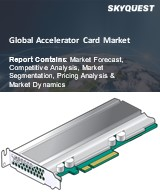
|
시장보고서
상품코드
1677057
하이브리드 양자 컴퓨팅 시장 : 컴포넌트, 용도, 전개 모드별 - 예측(2025-2030년)Hybrid Quantum Computing Market by Component, Applications, Deployment Mode - Global Forecast 2025-2030 |
||||||
하이브리드 양자 컴퓨팅 시장은 2024년 12억 2,000만 달러로 평가되었습니다. 2025년에는 15억 2,000만 달러에 이르고, 연평균 25.14% 성장하여 2030년에는 47억 달러에 달할 것으로 예상됩니다.
| 주요 시장 통계 | |
|---|---|
| 기준 연도 : 2024년 | 12억 2,000만 달러 |
| 추정 연도 : 2025년 | 15억 2,000만 달러 |
| 예측 연도 : 2030년 | 47억 달러 |
| CAGR(%) | 25.14% |
하이브리드 양자 컴퓨팅은 양자 역학과 고전적 계산 시스템의 획기적인 통합으로 새로운 혁신과 과학 발전의 시대를 열었습니다. 이 패러다임은 과거에는 극복할 수 없는 것으로 여겨졌던 복잡한 문제를 효과적으로 해결할 수 있게 하여 다양한 산업 분야에 획기적인 발전을 가져다 줄 것입니다. 양자 시스템의 독보적인 처리 능력과 고전 컴퓨터의 범용성 및 안정성을 결합하여 기업은 최적화 문제를 해결하고, 복잡한 분자 구조를 시뮬레이션하고, 방대한 데이터 세트를 전례 없는 속도로 분석할 수 있게 되었습니다.
하이브리드 양자컴퓨팅의 등장은 단순한 기술 진화의 결과라기보다는 수년간의 계산 한계에 대한 전략적 대응이기도 합니다. 산업계가 데이터의 복잡성과 계산 수요의 기하급수적인 증가에 직면한 가운데, 하이브리드 접근법은 현실적인 발전의 길을 제시합니다. 하이브리드 접근법은 현재 표준 컴퓨팅 시스템의 능력과 양자 프로세서의 잠재력 사이의 간극을 메워 금융, 헬스케어, 재료과학 등의 분야에서 중요한 성과 지표를 확실히 재정의할 수 있습니다.
또한, 이러한 통합은 연구기관, 기술 개발자, 산업계 리더들이 양자 잠재력을 활용하기 위해 협력하는 생태계를 조성하고 있습니다. 하이브리드 솔루션으로의 전환은 비즈니스 전략의 핵심 축이 되어 민첩성과 미래 대응력을 촉진합니다. 이러한 역동적인 환경에서 경쟁력을 유지하기 위해서는 기술 발전에 뒤처지지 않는 것이 필수적입니다.
하이브리드 양자 컴퓨팅 시장의 변화
하이브리드 양자 컴퓨팅의 등장으로 컴퓨팅 환경은 기술력과 전략적 비전 모두 빠르게 진화하고 있습니다. 한때 효율성의 정점으로 여겨졌던 전통적인 컴퓨팅 패러다임은 특정 고난이도 시나리오에서 뛰어난 성능을 발휘하는 양자 지원 솔루션에 비추어 재평가되고 있습니다.
최근 양자 역학을 최대한 활용하는 알고리즘의 최적화가 크게 발전하고 있습니다. 이를 통해 계산 시간이 단축되고, 시뮬레이션의 정확도가 향상되었으며, 최적화 문제를 해결하기 위한 새로운 접근법이 가능해졌습니다. 양자 역학과 고전 시스템의 통합은 단순한 기술적 강화가 아니라 리스크 대응, 신약 개발 프로세스 가속화, 재료 과학의 혁신 등 새로운 방식으로 비즈니스를 강화하는 전략적 원동력입니다. 기업들은 이러한 하이브리드 시스템 연구개발에 점점 더 많은 자원을 투입하고 있으며, 이는 양자 패권을 향한 세계 경쟁을 뒷받침하고 있습니다.
이러한 변화가 심화됨에 따라 업계 리더들은 비즈니스 모델의 개혁을 목격하고 있습니다. 양자 강화 플랫폼에서 시뮬레이션을 실행할 수 있게 됨에 따라 각 산업계가 R&D에 접근하는 방식이 재정의되고 있습니다. 하이브리드 시스템에 대한 투자 증가로 인해 다양한 분야의 인재와 파트너십이 급증하면서 이러한 기술 혁신을 더욱 가속화하고 있습니다. 그 결과, 이러한 진화는 양자 컴퓨팅과 기존 컴퓨팅이 공존하며 서로가 서로를 강화하는 상호 연결된 생태계의 토대를 마련하고 있습니다. 이러한 변화가 가져올 변화의 영향은 매우 크며, 이전에는 도달할 수 없었던 수준의 컴퓨팅 효율성과 혁신의 길을 열어줄 것입니다.
하이브리드 양자 컴퓨팅 시장 주요 세분화 인사이트
시장 세분화를 자세히 살펴보면, 하이브리드 양자 컴퓨팅 시장을 주요 기술, 용도, 배포 차원에 따라 다각적으로 분석할 수 있는 프레임워크가 보입니다. 구성 요소 분야에서는 시장을 하드웨어, 서비스, 소프트웨어로 엄격하게 구분하여 분석하며, 하드웨어 자체는 프로세서와 스토리지 솔루션으로 분류됩니다. 한편, 서비스는 매니지드 서비스와 전문 서비스로 확장되어 기술 솔루션이 운영 측면에서 효과적일 뿐만 아니라 기존 비즈니스 모델에 전략적으로 통합될 수 있도록 합니다.
응용 분야에 초점을 맞추면, 에너지 및 유틸리티, 환경-기상, 금융 서비스, 헬스케어, 재료과학, 우주-방위, 교통-물류 등 다양한 분야에서 시장을 조사했습니다. 에너지 분야에서는 최적화된 전력망 관리와 자원 분배의 혜택을 누릴 수 있으며, 환경 분야에서는 양자 모델을 활용하여 날씨와 기후 패턴을 예측합니다. 금융 서비스 분야에서는 포트폴리오 최적화 및 리스크 분석의 하위 부문이 데이터 기반 의사결정의 새로운 시대를 예고하고 있습니다. 마찬가지로 헬스케어 분야에서는 하이브리드 시스템의 컴퓨팅 성능 향상으로 신약개발과 유전체 연구의 혁명적인 범위가 크게 향상되고 있습니다. 나노기술과 양자화학의 발전은 제조와 설계에 혁명을 일으킬 수 있는 새로운 소재 개발의 길을 열어주고 있기 때문입니다.
마지막으로, 온-클라우드 솔루션과 온프레미스 솔루션으로 구분되는 도입 형태는 기업이 컴퓨팅 환경을 어떻게 구성하고 있는지에 대한 통찰력을 제공합니다. 온-클라우드 접근 방식은 유연성과 확장성을 제공하기 때문에 많은 초기 투자 없이 양자컴퓨팅의 힘을 활용하고자 하는 스타트업이나 대기업에 이상적입니다. 반면, 온프레미스 솔루션은 보안 및 성능에 대한 요구사항이 까다로운 조직이 선호하는 방식입니다. 이러한 시장 세분화 전략은 시장 역학을 더 깊이 이해하고, 혁신가와 기존 업계 기업의 전략적 의사결정을 지원하는 종합적인 로드맵을 제공합니다.
목차
제1장 서문
제2장 조사 방법
제3장 주요 요약
제4장 시장 개요
제5장 시장 인사이트
- 시장 역학
- 성장 촉진요인
- 성장 억제요인
- 기회
- 과제
- 시장 세분화 분석
- Porter's Five Forces 분석
- PESTEL 분석
- 정치
- 경제
- 사회
- 기술
- 법률
- 환경
제6장 하이브리드 양자 컴퓨팅 시장 : 컴포넌트별
- 하드웨어
- 프로세서
- 스토리지
- 서비스
- 매니지드 서비스
- 전문 서비스
- 소프트웨어
제7장 하이브리드 양자 컴퓨팅 시장 : 용도별
- 에너지 및 유틸리티
- 환경 및 날씨
- 금융 서비스
- 포트폴리오 최적화
- 리스크 분석
- 헬스케어
- Drug Discovery
- 유전체학
- 재료 과학
- 나노테크놀러지
- 양자 화학
- 우주 및 방위
- 운송 및 물류
제8장 하이브리드 양자 컴퓨팅 시장 : 전개 모드별
- 온클라우드
- 온프레미스
제9장 아메리카의 하이브리드 양자 컴퓨팅 시장
- 아르헨티나
- 브라질
- 캐나다
- 멕시코
- 미국
제10장 아시아태평양의 하이브리드 양자 컴퓨팅 시장
- 호주
- 중국
- 인도
- 인도네시아
- 일본
- 말레이시아
- 필리핀
- 싱가포르
- 한국
- 대만
- 태국
- 베트남
제11장 유럽, 중동 및 아프리카의 하이브리드 양자 컴퓨팅 시장
- 덴마크
- 이집트
- 핀란드
- 프랑스
- 독일
- 이스라엘
- 이탈리아
- 네덜란드
- 나이지리아
- 노르웨이
- 폴란드
- 카타르
- 러시아
- 사우디아라비아
- 남아프리카공화국
- 스페인
- 스웨덴
- 스위스
- 터키
- 아랍에미리트(UAE)
- 영국
제12장 경쟁 구도
- 시장 점유율 분석, 2024
- FPNV 포지셔닝 매트릭스, 2024
- 경쟁 시나리오 분석
- 전략 분석과 제안
기업 리스트
- Anyon Technologies
- Atos
- D-Wave Quantum Inc.
- DLR Quantencomputing
- Fujitsu Limited
- IBM Corporation
- IonQ, Inc.
- IQM Finland Oy
- Microsoft Corporation
- NVIDIA Corporation
- Origin Quantum Computing Technology(Hefei) Co., Ltd.
- PASQAL
- QC Ware Corporation
- QMware GmbH
- Quantum Brilliance Pty Ltd
- Quantum Xchange
- QuantWare
- QuTech
- Rigetti & Co, LLC.
- Xanadu Quantum Technologies Inc.
The Hybrid Quantum Computing Market was valued at USD 1.22 billion in 2024 and is projected to grow to USD 1.52 billion in 2025, with a CAGR of 25.14%, reaching USD 4.70 billion by 2030.
| KEY MARKET STATISTICS | |
|---|---|
| Base Year [2024] | USD 1.22 billion |
| Estimated Year [2025] | USD 1.52 billion |
| Forecast Year [2030] | USD 4.70 billion |
| CAGR (%) | 25.14% |
Hybrid quantum computing represents a groundbreaking integration of quantum mechanics with classical computational systems, ushering in a new era of innovation and scientific advancement. This paradigm enables the effective resolution of complex challenges that were once deemed insurmountable, driving breakthroughs across multiple industries. By combining the unrivaled processing power of quantum systems with the versatility and stability of classical computers, organizations can now tackle optimization problems, simulate intricate molecular structures, and analyze vast datasets at unprecedented speeds.
The emergence of hybrid quantum computing is not merely a result of technological evolution but also a strategic response to long-standing computational limitations. As industries face mounting data complexity and exponential growth in computational demands, the hybrid approach offers a pragmatic path forward. It bridges the gap between the current capabilities of standard computational systems and the potential of quantum processors, ensuring that key performance indicators in sectors such as finance, healthcare, and materials science can be redefined.
Moreover, this integration is fostering a collaborative ecosystem where research institutions, technology developers, and industry leaders are coalescing to harness quantum potential. The transition to hybrid solutions signals a significant pivot in operational strategies, promoting agility and future-readiness. In this dynamic environment, staying abreast of technological progress has become imperative for those aiming to maintain a competitive edge.
Transformative Shifts in the Hybrid Quantum Computing Landscape
The landscape of computing is experiencing transformative shifts with the advent of hybrid quantum computing, as both technological capabilities and strategic visions undergo rapid evolution. Traditional computing paradigms, once considered the pinnacle of efficiency, are now being reevaluated in light of quantum-assisted solutions that offer superior performance under specific, high-complexity scenarios.
In recent years, considerable strides have been made in optimizing algorithms to take full advantage of quantum mechanics. This has led to reduced computational times, enhanced precision in simulations, and novel approaches to solving optimization problems. The integration of quantum and classical systems is not just a technical enhancement but a strategic enabler that empowers businesses with new methods to address risk, speed up drug discovery processes, and innovate within material sciences. Companies are increasingly reallocating resources toward the research and development of these hybrid systems, underpinning a global race towards quantum supremacy.
As this shift intensifies, industry leaders are witnessing a reformation in their operational models. The ability to run simulations on quantum-enhanced platforms is redefining how industries approach research and development. Increased investment in hybrid systems is also driving a surge in cross-disciplinary talent and partnerships, which further accelerates this technological transformation. Consequently, this evolution is setting the stage for a more interconnected ecosystem where quantum and conventional computing coexist, each fortifying the strengths of the other. The transformative impact of these shifts is profound, opening pathways to previously unattainable levels of computational efficiency and innovation.
Key Segmentation Insights in the Hybrid Quantum Computing Market
A detailed exploration of market segmentation reveals a multifaceted framework that dissects the hybrid quantum computing market along critical technical, application, and deployment dimensions. In the component space, the market has been rigorously analyzed by separating hardware, services, and software, where hardware itself is categorized into processors and storage solutions. Services, on the other hand, expand into managed services and professional services, which collectively ensure that the technological solutions are not only operationally effective but also strategically integrated into existing business models.
Focusing on applications, the market is studied across a wide spectrum including energy and utilities, environment and weather, financial services, healthcare, material science, space and defense, as well as transportation and logistics. The energy sector benefits from optimized grid management and resource distribution, while the environmental segment leverages quantum models to predict weather and climate patterns. Within financial services, the sub-segments of portfolio optimization and risk analysis herald a new era of data-driven decision-making. Similarly, in healthcare, the revolutionary scope of drug discovery and genomics is dramatically bolstered by the enhanced computational prowess of hybrid systems. Material science is not left behind, as advancements in nanotechnology and quantum chemistry are paving the way for the development of novel materials that could revolutionize manufacturing and design.
Lastly, the deployment mode segmentation, which contrasts on-cloud and on-premise solutions, offers insights into how enterprises are configuring their computing environments. The on-cloud approach provides flexibility and scalability, proving ideal for startups and large corporations alike that wish to harness the power of quantum computing without large upfront investments. Conversely, on-premise solutions are preferred by organizations with stringent security and performance requirements. The segmentation strategy thus provides a comprehensive roadmap that drives better understanding of the market dynamics and supports strategic decision-making for both innovators and traditional industry players.
Based on Component, market is studied across Hardware, Services, and Software. The Hardware is further studied across Processors and Storage. The Services is further studied across Managed Services and Professional Services.
Based on Applications, market is studied across Energy & Utilities, Environment & Weather, Financial Services, Healthcare, Material Science, Space & Defense, and Transportation & Logistics. The Financial Services is further studied across Portfolio Optimization and Risk Analysis. The Healthcare is further studied across Drug Discovery and Genomics. The Material Science is further studied across Nanotechnology and Quantum Chemistry.
Based on Deployment Mode, market is studied across On-cloud and On-premise.
Regional Insights in the Hybrid Quantum Computing Ecosystem
Regional dynamics continue to shape the trajectory of hybrid quantum computing with significant differences observed across the Americas, Europe, Middle East & Africa, and Asia-Pacific. In the Americas, robust investments in technological infrastructure and a high concentration of research institutions spur accelerated innovation and real-world application integration. Simultaneously, European nations coupled with regions in the Middle East and Africa are demonstrating strong governmental support and public-private partnerships aimed at fostering quantum research and secure computational solutions. Meanwhile, the Asia-Pacific region is emerging as a powerhouse of technological adoption, marked by rapid industrial growth and an increasingly competitive technological landscape. These diverse regional insights underscore the dynamic nature of the market, highlighting both the challenges and opportunities inherent in a globally orchestrated tech revolution.
Based on Region, market is studied across Americas, Asia-Pacific, and Europe, Middle East & Africa. The Americas is further studied across Argentina, Brazil, Canada, Mexico, and United States. The United States is further studied across California, Florida, Illinois, New York, Ohio, Pennsylvania, and Texas. The Asia-Pacific is further studied across Australia, China, India, Indonesia, Japan, Malaysia, Philippines, Singapore, South Korea, Taiwan, Thailand, and Vietnam. The Europe, Middle East & Africa is further studied across Denmark, Egypt, Finland, France, Germany, Israel, Italy, Netherlands, Nigeria, Norway, Poland, Qatar, Russia, Saudi Arabia, South Africa, Spain, Sweden, Switzerland, Turkey, United Arab Emirates, and United Kingdom.
Comprehensive Insights on Leading Companies Driving Hybrid Quantum Advancements
The competitive landscape of hybrid quantum computing is marked by the active involvement of pioneering firms that are leveraging both innovative research and deep technical expertise to drive market leadership. Industry players such as Anyon Technologies and Atos are continuously refining their technological portfolios, while D-Wave Quantum Inc. and DLR Quantencomputing are at the forefront of advancing quantum processor capabilities. Global giants like Fujitsu Limited and IBM Corporation bring decades of experience and integrated systems expertise, merging their legacy with cutting-edge quantum research. In parallel, emerging leaders such as IonQ, Inc. and IQM Finland Oy have shown rapid growth and resilience in a sector that demands continual innovation.
Further enriching the landscape, firms like Microsoft Corporation and NVIDIA Corporation have strategically positioned themselves by incorporating quantum computing into broader digital transformation strategies, ensuring that their clients benefit from enhanced computational capabilities. Other notable contributors including Origin Quantum Computing Technology (Hefei) Co., Ltd., PASQAL, QC Ware Corporation, QMware GmbH, and Quantum Brilliance Pty Ltd are harnessing unique strengths that range from specialized hardware development to advanced algorithmic design. Quantum Xchange and QuantWare continue to break new ground in secure quantum communications and software solutions, while collaborative entities like QuTech, Rigetti & Co, LLC. and Xanadu Quantum Technologies Inc. further demonstrate a commitment to driving commercial feasibility and scalability. Collectively, these companies not only push the boundaries of current technological paradigms but also establish a robust framework for sustained growth in hybrid quantum computing innovations.
The report delves into recent significant developments in the Hybrid Quantum Computing Market, highlighting leading vendors and their innovative profiles. These include Anyon Technologies, Atos, D-Wave Quantum Inc., DLR Quantencomputing, Fujitsu Limited, IBM Corporation, IonQ, Inc., IQM Finland Oy, Microsoft Corporation, NVIDIA Corporation, Origin Quantum Computing Technology (Hefei) Co., Ltd., PASQAL, QC Ware Corporation, QMware GmbH, Quantum Brilliance Pty Ltd, Quantum Xchange, QuantWare, QuTech, Rigetti & Co, LLC., and Xanadu Quantum Technologies Inc.. Actionable Recommendations for Industry Leaders in Hybrid Quantum Computing
For industry leaders aiming to capitalize on the transformative capabilities inherent in hybrid quantum computing, it is imperative to develop a dual-pronged strategy that addresses both technology acquisition and organizational readiness. First, enterprises should invest in pilot projects that enable the evaluation of quantum-classical integrations in controlled settings. These projects help in identifying key performance indicators and in establishing benchmarks that can be scaled later across broader operational arenas. Leaders should also consider forming strategic alliances with both established players and innovative startups to foster a mutually beneficial knowledge exchange.
Beyond technical investments, cultivating an adaptive workforce is equally critical. Upskilling existing teams through targeted training on quantum technologies and fostering interdisciplinary collaboration can significantly reduce deployment risks. By tying together technology and talent, organizations ensure a smoother transition towards adopting hybrid solutions. It is recommended that decision-makers incorporate a flexible roadmap that not only aligns with current technological trends but also allows for agile updates as quantum advancements continue to evolve. Ultimately, a strategic investment in both human capital and technology infrastructure will be the key to leveraging the full potential of hybrid quantum computing.
Conclusion: The Evolutionary Horizon of Hybrid Quantum Computing
The convergence of quantum and classical computing paradigms heralds a significant evolution in computational capabilities, promising transformative impacts across industries and geographies. The synthesis of hardware, services, and software components along with targeted applications and deployment strategies paints a comprehensive picture of the market. Continuous advancements and strategic partnerships are setting the stage for an era where traditional computing's limitations are overcome by quantum-enhanced approaches.
In closing, while challenges remain in scaling and integration, the momentum behind hybrid quantum computing is undeniable. Its emergence is redefining competitive landscapes and driving innovation in sectors as diverse as healthcare, finance, and energy. The future belongs to those who strategically invest in understanding and leveraging this disruptive technology.
Table of Contents
1. Preface
- 1.1. Objectives of the Study
- 1.2. Market Segmentation & Coverage
- 1.3. Years Considered for the Study
- 1.4. Currency & Pricing
- 1.5. Language
- 1.6. Stakeholders
2. Research Methodology
- 2.1. Define: Research Objective
- 2.2. Determine: Research Design
- 2.3. Prepare: Research Instrument
- 2.4. Collect: Data Source
- 2.5. Analyze: Data Interpretation
- 2.6. Formulate: Data Verification
- 2.7. Publish: Research Report
- 2.8. Repeat: Report Update
3. Executive Summary
4. Market Overview
5. Market Insights
- 5.1. Market Dynamics
- 5.1.1. Drivers
- 5.1.1.1. Rising demand for high-performance computing and complex problem-solving solutions
- 5.1.1.2. Significant public and private sector investment in quantum computing
- 5.1.2. Restraints
- 5.1.2.1. High cost associated with the development and maintenance of hybrid quantum systems
- 5.1.3. Opportunities
- 5.1.3.1. Development and optimization of new hybrid algorithms for efficient problem-solving techniques
- 5.1.3.2. Collaboration among academic institutions and technology companies to accelerate hybrid quantum computing research
- 5.1.4. Challenges
- 5.1.4.1. Lack of error correction methods and high noise level in hybrid quantum computing
- 5.1.1. Drivers
- 5.2. Market Segmentation Analysis
- 5.2.1. Component: Significance of software for ensuring compatibility and seamless integration
- 5.2.2. Applications: Rising adoption of hybrid quantum computing of financial services to optimize investment portfolios
- 5.3. Porter's Five Forces Analysis
- 5.3.1. Threat of New Entrants
- 5.3.2. Threat of Substitutes
- 5.3.3. Bargaining Power of Customers
- 5.3.4. Bargaining Power of Suppliers
- 5.3.5. Industry Rivalry
- 5.4. PESTLE Analysis
- 5.4.1. Political
- 5.4.2. Economic
- 5.4.3. Social
- 5.4.4. Technological
- 5.4.5. Legal
- 5.4.6. Environmental
6. Hybrid Quantum Computing Market, by Component
- 6.1. Introduction
- 6.2. Hardware
- 6.2.1. Processors
- 6.2.2. Storage
- 6.3. Services
- 6.3.1. Managed Services
- 6.3.2. Professional Services
- 6.4. Software
7. Hybrid Quantum Computing Market, by Applications
- 7.1. Introduction
- 7.2. Energy & Utilities
- 7.3. Environment & Weather
- 7.4. Financial Services
- 7.4.1. Portfolio Optimization
- 7.4.2. Risk Analysis
- 7.5. Healthcare
- 7.5.1. Drug Discovery
- 7.5.2. Genomics
- 7.6. Material Science
- 7.6.1. Nanotechnology
- 7.6.2. Quantum Chemistry
- 7.7. Space & Defense
- 7.8. Transportation & Logistics
8. Hybrid Quantum Computing Market, by Deployment Mode
- 8.1. Introduction
- 8.2. On-cloud
- 8.3. On-premise
9. Americas Hybrid Quantum Computing Market
- 9.1. Introduction
- 9.2. Argentina
- 9.3. Brazil
- 9.4. Canada
- 9.5. Mexico
- 9.6. United States
10. Asia-Pacific Hybrid Quantum Computing Market
- 10.1. Introduction
- 10.2. Australia
- 10.3. China
- 10.4. India
- 10.5. Indonesia
- 10.6. Japan
- 10.7. Malaysia
- 10.8. Philippines
- 10.9. Singapore
- 10.10. South Korea
- 10.11. Taiwan
- 10.12. Thailand
- 10.13. Vietnam
11. Europe, Middle East & Africa Hybrid Quantum Computing Market
- 11.1. Introduction
- 11.2. Denmark
- 11.3. Egypt
- 11.4. Finland
- 11.5. France
- 11.6. Germany
- 11.7. Israel
- 11.8. Italy
- 11.9. Netherlands
- 11.10. Nigeria
- 11.11. Norway
- 11.12. Poland
- 11.13. Qatar
- 11.14. Russia
- 11.15. Saudi Arabia
- 11.16. South Africa
- 11.17. Spain
- 11.18. Sweden
- 11.19. Switzerland
- 11.20. Turkey
- 11.21. United Arab Emirates
- 11.22. United Kingdom
12. Competitive Landscape
- 12.1. Market Share Analysis, 2024
- 12.2. FPNV Positioning Matrix, 2024
- 12.3. Competitive Scenario Analysis
- 12.3.1. AWS and NVIDIA collaborate to accelerate hybrid quantum computing with seamless integration of CUDA-Q into Amazon Braket
- 12.3.2. Germany's pioneering hybrid quantum computer launch bolsters global tech position and research innovation
- 12.3.3. D-Wave introduces new hybrid quantum solver at Qubits 2024
- 12.4. Strategy Analysis & Recommendation
Companies Mentioned
- 1. Anyon Technologies
- 2. Atos
- 3. D-Wave Quantum Inc.
- 4. DLR Quantencomputing
- 5. Fujitsu Limited
- 6. IBM Corporation
- 7. IonQ, Inc.
- 8. IQM Finland Oy
- 9. Microsoft Corporation
- 10. NVIDIA Corporation
- 11. Origin Quantum Computing Technology (Hefei) Co., Ltd.
- 12. PASQAL
- 13. QC Ware Corporation
- 14. QMware GmbH
- 15. Quantum Brilliance Pty Ltd
- 16. Quantum Xchange
- 17. QuantWare
- 18. QuTech
- 19. Rigetti & Co, LLC.
- 20. Xanadu Quantum Technologies Inc.



















